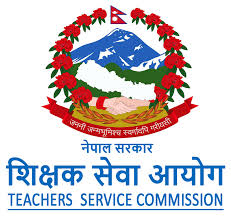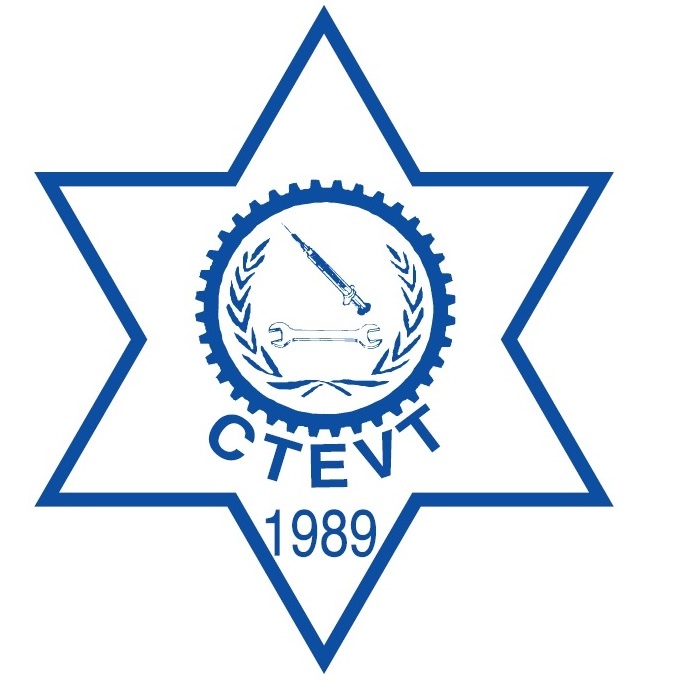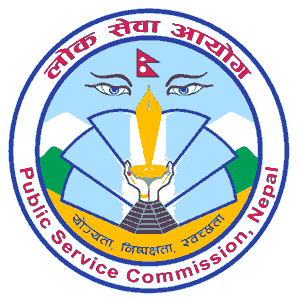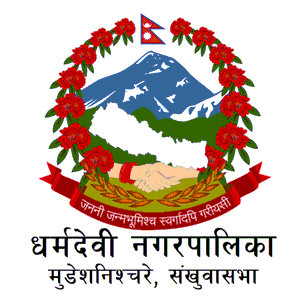Overview
University Grants Commission Nepal (UGC): Nepal's system for higher education has transformed significantly since the early 1990s, with the University Grants Commission playing a central role. Established in 1994 (2051 BS) through the University Grants Commission Act of 1993, known in Nepali as Vishwavidyalaya Anudan Aayog (विश्वविद्यालय अनुदान आयोग), is a key driver of advancement. The UGC is crucial in determining Nepal's academic direction, improving educational standards, and supporting workforce development to align with national needs and global benchmarks.
Before the UGC was created, higher education in Nepal began, and many obstacles faced it. The government recognized the pressing need for organized growth and better quality, particularly after significant political changes, and initiated the UGC to lead improvements throughout the sector. This proactive step showed a dedication to building a strong and relevant higher education system that could contribute to Nepal's overall progress.

Core Aims of UGC Nepal
The UGC operates with a clear set of aims; all focused on building a more effective and inclusive system of advanced learning across the country. These aims guide all of its actions and policies:
Elevating Education Quality
The UGC aims to raise the standard of education provided at Nepali universities and colleges. This involves encouraging excellent teaching, updating course content to meet current demands, and creating an atmosphere that supports serious academic work. The UGC aims to bring educational standards in Nepal up to international levels.
Building a Skilled Workforce
Understanding the strong connection between education and national progress, the UGC is committed to preparing a highly educated and skilled workforce. This means ensuring academic programs match the changing needs of the Nepali economy and that graduates have the skills needed for national development. Workforce development is a key part of the UGC's overall plan.
Promoting Research and Innovation
The UGC actively promotes a research culture within higher education institutions to build a knowledge-driven society. This includes providing research grants, supporting joint research projects, and setting up ways to share knowledge. By focusing on research and development, the UGC wants to place Nepali academia at the forefront of new ideas.
Ensuring Inclusion and Access
The UGC is strongly dedicated to making higher education available to everyone in Nepali society, especially those from less privileged backgrounds. Promoting educational inclusivity and fairness is a social responsibility and essential for national progress. The UGC works to remove barriers to access and create opportunities for all capable individuals to pursue higher education.
-Building.jpg)
Key Characteristics of UGC Nepal
Several essential features define how the UGC works and contribute to its success in guiding higher education in Nepal. These characteristics highlight its dedication to quality, fairness, and new ideas:
-
Independent Statutory Body: The UGC's position as an autonomous statutory body, created by the UGC Act 1993, is essential for its operational freedom. This independence allows the UGC to decide about educational policy formulation, funding, and quality assurance without external pressures. This freedom is vital for remaining objective and focusing solely on improving higher education.
-
Wide-Ranging Objectives: As mentioned, the UGC works toward a broad set of objectives, including improving quality, access, research promotion, and alignment with global standards. This comprehensive approach ensures its efforts are varied and addresses many parts of the higher education system.
-
Varied Funding Methods: Financial support is crucial for academic progress, and the UGC uses diverse funding mechanisms to assist institutions, teachers, and students. These include allocating government grants for universities in Nepal, providing scholarships and fellowships, and funding infrastructure development and research projects. These different methods of providing financial aid are designed to meet various needs within higher education.
-
Quality Assurance and Accreditation (QAA): The UGC is centrally responsible for maintaining quality assurance and accreditation. It sets and monitors educational standards, ensuring institutions meet required norms and offer high-quality education. This focus on quality control is crucial for building confidence in Nepali higher education at home and abroad.
-
Research and Development Support: The UGC values research and development support. It actively promotes a strong research culture in universities and colleges through research grants and other programs. This research commitment is vital for driving innovation and contributing to national knowledge.
-
Focus on Inclusion: Promoting educational inclusivity initiatives is key to the UGC's work. It actively strives to ensure higher education opportunities are open to disadvantaged groups, promoting educational equity and social fairness.
-
Encouraging Collaboration: Recognizing the benefits of working together, the UGC actively encourages educational collaboration among higher education institutions in Nepal and promotes international partnerships. This helps share knowledge and resources and improves Nepali academia's global competitiveness.
-
Policy Advice Role: The UGC is essential in advising the government on educational policy. It offers advice on establishing new universities and on issues related to higher education policy in Nepal, especially concerning institutions linked with foreign entities. This advisory role makes the UGC a key influencer in shaping the national education scene.
-
Building Capacity Programs: The UGC undertakes various educational capacity-building initiatives to strengthen the workforce in higher education. These initiatives include organizing training and development programs for teachers and institutional leaders and improving their teaching and management skills.
-
Resource and Information Center: The UGC runs an educational resource center that provides access to academic materials, research publications, and various educational resources. This center supports scholarly research, learning, and the spread of knowledge within the higher education community.
-
Integrating Technology in Education: The UGC promotes technological integration in today's digital age. It encourages the use of technology in teaching, learning, research, and administration, improving efficiency, accessibility, and the overall quality of education delivery.
Commission Composition
The University Grants Commission is structured to benefit from a wide range of expertise, bringing together individuals from different parts of education and government. This diverse educational governance structure ensures well-informed decision-making and effective educational policy formulation.
The composition includes:
-
Chairman: The Chairman, appointed by the Government of Nepal, is the leader of the UGC. This person sets strategic direction, leads meetings, and oversees the Commission's operations to ensure it achieves its goals.
-
Member-Secretary: Also appointed by the Government of Nepal, the Member-Secretary is responsible for the daily administration of the UGC. They implement policies, manage operations, and act as a key link between the Commission and its various stakeholders.
-
Government Representatives: The Commission includes important government officials:
-
Secretary of the Ministry of Education: Provides direct input from the Ministry responsible for national education policy.
-
The secretary of the Ministry of Finance brings financial knowledge and ensures alignment with national financial strategies. These representatives connect educational policy with wider government frameworks.
-
-
National Planning Commission Member: A member of the National Planning Commission ensures that higher education policies align with Nepal's broader development aims and national plans.
-
Vice-Chancellors: Two Vice-Chancellors from Nepali universities are members of the Commission. They represent the university perspective and offer practical insights from academic and administrative leadership in higher education institutions.
-
Educationists and Professors: The Commission benefits from the knowledge of prominent figures in education:
-
Two respected educationists Contribute broad educational expertise and experience.
-
Two respected professors (appointed by the Government of Nepal): Offer in-depth academic knowledge and views from the professoriate. These members enrich the Commission with diverse scholarly viewpoints.
-
-
Prominent Figures in Higher Education: Two individuals who contributed significantly to Nepal's higher education are included. Their unique insights and extensive experience in the sector bring valuable perspectives to the Commission's discussions.
UGC's Transformative Impact on Nepali Higher Education
Creating the UGC was a turning point in developing higher education in Nepal. Before it existed, access to higher education was limited, with only a few universities serving a small portion of the population. The UGC has been key in making higher education accessible and including previously marginalized groups in the academic community.
By setting educational standards and maintenance procedures and providing strategic guidance, the UGC is vital in ensuring that Nepal's higher education system develops to meet national goals and international standards. Its ongoing efforts are essential for building an accessible, high-quality system that significantly contributes to Nepal's progress.
Key Functions of UGC
The UGC performs many essential functions to shape and improve higher education across Nepal. These functions are strategically designed to promote academic excellence and create a collaborative and supportive educational environment.
Funding and Grant Distribution
-
Policy Development for Grants: The UGC is responsible for creating an educational funding policy for distributing government grants for universities in Nepal and other higher education institutions. This ensures fairness, openness, and effectiveness in allocating funds to support educational progress.
-
Grant Disbursement: The UGC directly distributes funds to universities and colleges, supporting their operational needs, academic programs, and research projects. This financial support is crucial for creating a positive learning environment and promoting research.
-
Recommendations for Funding Adjustments: The UGC advises the government on necessary changes to educational funding allocations, ensuring that financial support for higher education stays responsive to changing needs and national priorities.
Support for Research and Development
-
Research Grants: The UGC's core function is providing research grants. These grants are intended to encourage a culture of inquiry and educational innovation within the academic community, fostering the creation of knowledge and problem-solving.
-
Scholarships and Fellowships: The UGC provides scholarships and fellowships to assist students and academics in pursuing higher education and research. These programs are vital for nurturing talent and promoting educational excellence initiatives.
Quality Assurance and Standards Maintenance
The UGC takes proactive steps to maintain educational standards across higher education institutions. This function ensures that education throughout the country meets national and international quality and rigor benchmarks.
Advisory and Coordination Role
-
Advisory to the Government: The UGC advises the government on educational policy, especially regarding establishing new universities and operating institutions affiliated with foreign entities. This advice is crucial for the strategic growth and integration of the higher education system.
-
Promoting Cooperation and Coordination: The UGC actively fosters good relationships, cooperation, and coordination among universities in Nepal. This includes encouraging joint projects and academic exchanges, sharing resources and best practices, and enhancing educational collaboration facilitation.
Resource and Knowledge Exchange
-
Resource and Fellowship Exchanges: The UGC facilitates arrangements for exchanging resources, funds, and fellowships between universities and educational institutions in Nepal and abroad. This promotes international academic collaboration and broadens Nepali academia's global perspective.
Organizational Structure of UGC Nepal
The UGC operates with a carefully planned organization to effectively manage and improve higher education throughout Nepal. This structure is centered on its main body, the Board, and supported by various divisions, secretariats, sections, and units focusing on specific areas of higher education management.
Apex Body (The Board)
-
Executive Chairman: Leads the UGC, appointed by the government on the recommendation of the Ministry of Education, chosen from academic leaders and respected professors.
-
Executive Member Secretary: Appointed by the government, responsible for implementing the Commission's decisions and managing daily operations.
-
Ex-Officio Members: Include secretaries from the Ministry of Education (MOE) and Ministry of Finance (MOF) and a member from the National Planning Commission (Social Sector/Education Desk).
-
Vice-Chancellors: Representing two universities, usually including one from Tribhuvan University and another from a different Nepali university.
-
Respected Professors and Educationists: Two were appointed to the Board, contributing their expertise and insights.
-
Members' Terms: All members, including the Chairman and Secretary, serve for four years, with the possibility of reappointment.
Divisions and Sections
1. General Administration Division
-
Human Resource Management Section
-
Financial Administration Section
-
Information and Technology Section
-
Logistic Management Unit
2. Planning, Monitoring, and Evaluation Division
-
Planning, Program, and Budget Section
-
Monitoring and Evaluation Section
-
International Relation Section
3. University Coordination Division
-
Coordination Regulation and Good Governance Section
-
Aptitude Tests and Equivalence Section
-
Grants Allocation Section
4. Research and Scholarship Division
-
Scholarship and Fellowship Section
-
Research and Grants Section
-
Training and Promotion Section
-
UGC Resource Centre
5. Quality Assurance and Accreditation Secretariat
-
Facilitation, Monitoring, and Evaluation Section
-
Accreditation Section
-
Administration and Finance Unit
Committees and Task Forces
The UGC establishes various committees and task forces, as allowed by the University Grants Commission Act, to handle specific responsibilities, including:
-
Recruitment Committee
-
University Coordination Committee
-
Academic Committee
-
Research Council
-
Quality Assurance and Accreditation Board
-
Special teams and committees for specific projects and initiatives like the Reform Committee, Peer Review Team, Theme/Task Committee, Cluster Committee, and University Feasibility Study Task Force.
Publication Board
The UGC has a Publication Board that systematically records its activities and achievements. The Board publishes essential documents, research articles, articles on current events, and annual reports.
This well-structured educational governance framework enables the UGC to effectively oversee the growth, coordination, quality assurance, and accreditation of higher education in Nepal, ensuring it meets national and international standards of excellence.
Conclusion
The University Grants Commission (UGC) is a cornerstone of the nation's higher education system. As an autonomous government body, it is dedicated to improving educational standards, promoting a research culture, and ensuring educational inclusivity. The UGC plays a crucial role in shaping a strong and active higher education scene through its many functions, including government grants for universities in Nepal, quality assurance, and accreditation. The UGC's dedication to educational excellence, innovation, and accessibility promotion is vital for Nepal's future. By developing a skilled workforce and promoting academic advancement, the University Grants Commission remains an essential institution, guiding the direction of higher education in Nepal and significantly contributing to the nation's overall development and progress.













